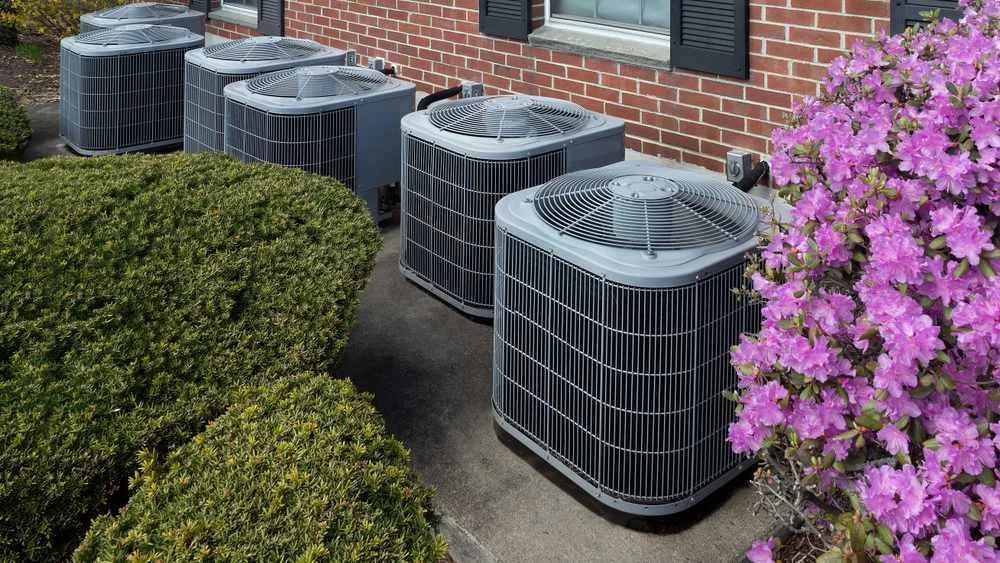
Key Takeaways
- Compressor failures often result from issues such as dirty coils, refrigerant leaks, and electrical problems.
- Indicators of compressor failure include weak airflow, unusual noises, frequent breaker trips, and high bills.
- Focus on regular maintenance tasks, such as cleaning coils and clearing debris from the outdoor area, to prevent compressor breakdown.
The last thing you want to find out on a hot, scorching day is that your air conditioner is not working. While some AC problems are not that costly, if the reason turns out to be AC compressor failure, it will surely put a big dent in your wallet. The cost of replacing an HVAC compressor averages around $1200.
The good thing is that the majority of issues build up slowly and can be prevented with your regular care and a watchful eye for early warning signs.
We have compiled an extensive list to help you diagnose the problem early on and provide you with tips to prevent the issue in the future.
What Does an AC Compressor Do?
The compressor is one of the most crucial components of your air conditioner, located in the outdoor unit.
Its main job is to compress the AC refrigerant, a special fluid that moves heat out of your home. The cold refrigerant inside the evaporator coil picks up heat from the indoor air and becomes a warm gas. This warm gas travels outside to the compressor, where it is squeezed (compressed). When the gas is compressed, it becomes even hotter and reaches a higher pressure.
The hot, high-pressure gas then passes through the condenser coil (located in the outdoor unit). Here, the heat is released into the outdoor air, and the refrigerant cools down, returning to its liquid state. The cool liquid refrigerant travels back to the indoor unit, and the process continues.
With proper care, a compressor can last 10 to 15 years. If maintenance is neglected, dust, debris, or refrigerant leaks can cause damage and shorten its life.
If your compressor breaks down, your air conditioner won’t cool your home until the problem is fixed. Often, replacing a failed compressor is the only solution, which can be expensive.
5 Warning Signs of an AC Compressor Failure
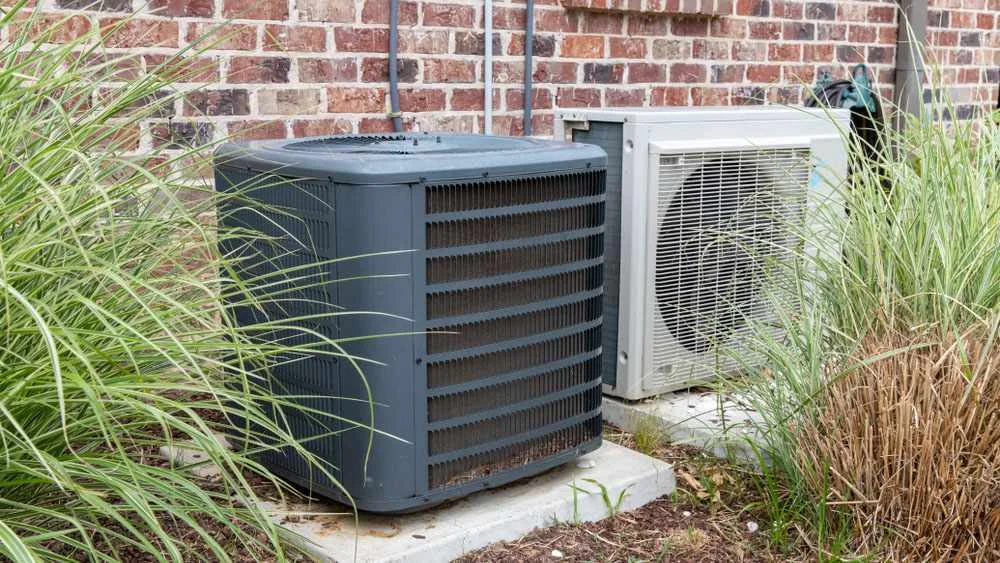
Compressor repairs or replacements can be expensive, so it’s smart to catch the problems early on. Here are five important warning signs that your AC compressor could be in trouble:
1. Weak Airflow from Vents
Weak HVAC airflow is one of the early symptoms of AC compressor failure. However, it may be quite hard to notice it as you will continue to lower the temperature for the first few days if you feel that your home is not cool enough.
The best way to determine if the airflow is weak is to place your hands under the vents. If you feel little to no airflow or experience warm air when it should be cool, this indicates that your aircon has a compressor issue.
2. Unusual or Loud Noises From the Outdoor Unit
If you hear banging, clanking, or growling sounds from the outdoor unit, take notice. These sounds often mean something is loose or broken inside the compressor. They may also indicate that the compressor is having trouble starting and is likely to fail in the future.
3. Refrigerant Leaks or Ice Buildup
The telltale signs of a refrigerant leak include weak airflow, hissing sounds, water around your HVAC unit, or ice formation on the evaporator coils. It is best to address a refrigerant leak on an urgent basis, as it could lead to various problems. It can have an impact on your system’s cooling and potentially lead to compressor failure in the long run.
4. High Electricity Bills
A failing compressor is often less efficient and must run longer to maintain a cool home, causing your electricity bills to rise, even if your usage stays the same. If your bills are rising for no apparent reason, have your air conditioner checked right away.
5. Circuit Breaker Keeps Tripping
If your AC’s circuit breaker trips once, it might be due to a temporary overload. However, if the AC breaker repeatedly keeps tripping, it can be an alarming sign. A failing compressor can overheat or draw too much current, causing the breaker to shut off power for safety. This protects your home from electrical fires, but it’s also a clear sign that something is wrong.
What Causes AC Compressor Failure? – 10 Common Reasons
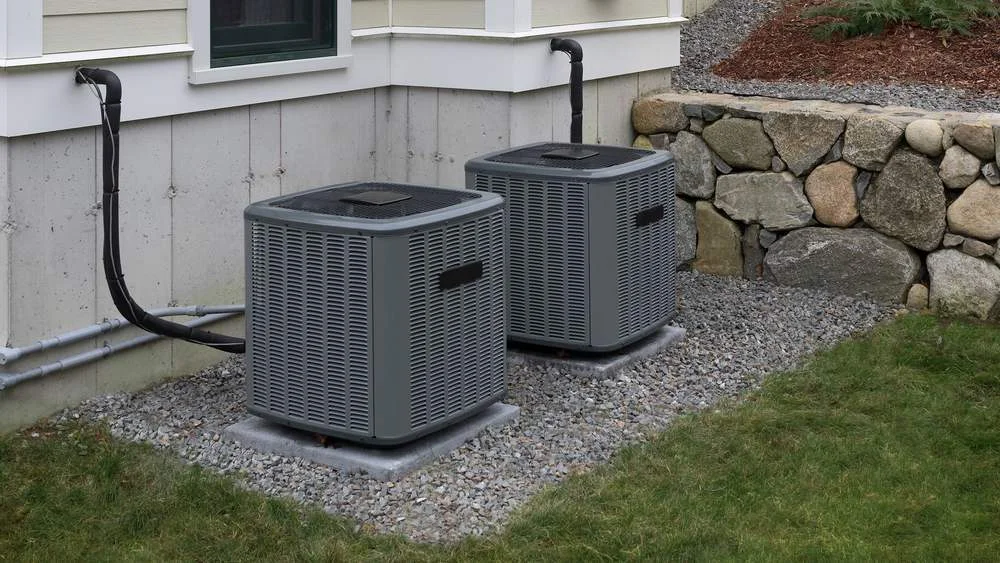
AC compressor failure is usually due to an internal problem that impacts the performance of your compressor over time.
Here is the list of 10 common causes of an air conditioner’s compressor failure that require your immediate attention:
AC compressor failure rarely happens suddenly. Most of the time, it’s the result of ongoing problems that build up over weeks or months.
Here is the list of 10 common causes of AC compressor failure that require your immediate attention:
1. Electrical Failures
Electrical problems are a leading cause of compressor failure. These can include damaged wires, faulty contactors, or blown fuses. When electrical components fail, they often create acid buildup inside the system, which can damage the compressor and other parts. Power surges can also result in electrical issues in your air conditioner. Acid and oxidation buildup are usually prominent signs of electrical problems in your HVAC system.
How to Fix:
Call a trained HVAC professional. They will
- Test for acid buildup using specialized test kits.
- Inspect and replace burned, corroded, or faulty wires, contactors, or relays.
- Check for signs of short circuits.
2. Blocked Condenser Coils
Condenser coils release the heat removed from your home to the outside. When these coils are covered in dirt or grime, they can’t dissipate heat efficiently. This makes your compressor work much harder and can lead to overheating.
How to Fix:
Clean condenser coils at least once a year, and keep the area around your outdoor unit clear of debris.
3. Compressor Overheating
When your compressor overheats, it can eventually fail. Dirty coils, low refrigerant levels, direct sunlight on the unit, or poor ventilation around the outdoor unit can cause overheating. High voltages can also damage the motor, causing the compressor to overheat.
How to Fix:
Ensure your outdoor unit has sufficient airflow and shade. Regularly check refrigerant levels and have your system serviced before peak summer use.
4. Displaced Evaporator Motor
If the evaporator motor (which blows air over the evaporator coil) is displaced, it can cause refrigerant to flow back to the compressor. This can cause the compressor oil to be pushed out, leading to poor lubrication. It causes the compressor to lose its efficiency over time, and eventually, it will cease to operate.
How to Fix:
A technician can inspect the motor alignment during a routine service and fix any displacement issues before they become serious.
5. Low Refrigerant Levels
Your AC needs the correct amount of refrigerant to work properly. It is a common misconception that refrigerant levels decrease with time. Your air conditioner doesn’t use up the refrigerant. If the levels are low, there is likely a refrigerant leak that needs to be addressed urgently.
Low refrigerant levels decrease the pressure, causing the compressor to work harder to push the refrigerant through the system. Eventually, the entire compressor will collapse.
How to Fix:
Have a certified HVAC technician locate and repair any refrigerant leaks. Once repaired, the system should be recharged with the precise refrigerant type and amount specified by the manufacturer.
6. Too Much Refrigerant
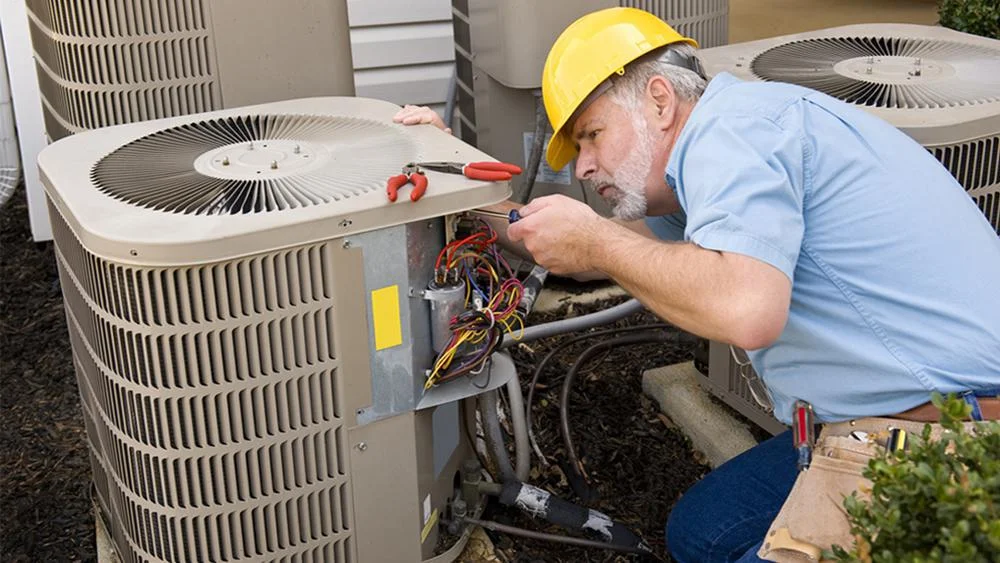
While low refrigerant is a problem, too much is also dangerous.
A less qualified person may not know how to fill up the refrigerant properly and end up filling it more than required. High levels of refrigerant can lead to increased pressure in the system, resulting in premature failure of the AC compressor.
How to Fix:
Only a licensed technician should handle HVAC repairs and refrigerant refills. The refrigerant levels must match exactly the quantity specified by the manufacturer. Too much or too little can damage your system and reduce efficiency.
7. Lack of Lubrication
Your HVAC needs the correct amount of lubrication to function optimally. Without adequate lubrication, wear and tear will increase, causing your compressor to work harder and less efficiently. When there are low levels of oil, your compressor parts rub against each other. This causes small parts to come loose and become dislodged within the system.
Loss of lubrication is primarily caused by leakage from the evaporator, condenser, pipe connections, or the compressor shaft seal. An overstressed compressor is likely to break down earlier than its expected lifespan.
How to Fix:
Getting your air conditioner serviced is the key to preventing this problem. The experts will check the lubricant levels, make any necessary adjustments, and verify that the oil pump is functioning properly.
8. Clogged or Damaged Suction Lines
The suction line is a copper line running between the indoor and outdoor unit. It carries the refrigerant from the indoor evaporator coil to the outdoor compressor.
Over time, the suction lines of your refrigerator can develop cracks and holes, which can hinder the flow of refrigerant in the system. This puts stress on your compressor, as it now has to use extra power to pump enough refrigerant through the unit, which can result in a breakdown. One of the evident signs is a decrease in the cooling capacity.
How to Fix:
Have a qualified technician inspect the suction lines for leaks, damage, or blockages. Addressing these issues ensures proper refrigerant flow and optimal AC performance.
9. Dirt and Debris Stuck in the Outdoor Unit
Dust, leaves, twigs, and moisture can accumulate inside the outdoor unit. This buildup can block airflow through the condenser coils, causing the system to overheat and potentially leading to oil carbonization, where excessive heat damages the compressor oil. Oil carbonization can damage critical components, such as the compressor valves, pistons, and other internal parts.
How to Fix:
Keep the outdoor area clear, and trim the nearby vegetation to prevent the leaves from getting stuck inside. It’s also a good idea to clean the outdoor unit at least once a year to help it run more efficiently.
10. Incorrect Sizing of Suction Lines
If the suction line is too long or too short for your system, it can cause pressure imbalances that lead to the compressor overheating or working too hard. This is often the result of DIY repairs or the use of inexperienced technicians.
How to Fix:
Always hire a qualified professional for any repairs involving refrigerant lines. The correct size and length are crucial for safe and efficient operation.
How to Prevent AC Compressor Breakdown? 7 Easy Tips
-
Inspect the Wiring
You need a regular professional inspection to check the wiring and electrical components. Wiring issues can lead to acid accumulation, which deteriorates many components of your air conditioner, including the most important one – your compressor.
During the inspection, the technician can check and replace any faulty wires and fuses before they lead to acid buildup.
-
Use a Surge Protector or Voltage Monitor
Protect your air conditioner from power surges and voltage drops by installing a surge protector or voltage monitoring device. These tools shield sensitive compressor electronics from sudden power supply fluctuations. Some advanced surge protectors even come with compressor warranty coverage for added peace of mind.
-
Keep the Outdoor Unit Clean and Clear
Leaves, grass, and debris can block airflow around your outdoor AC unit (condenser). Poor airflow forces the compressor to work harder, raising the risk of overheating and early failure. Make it a habit to clear away clutter and trim plants or shrubs within two feet of the unit.
-
Keep the Suction Lines Clean
Temperature and pressure changes can impact the normal operation of your compressor. When suction lines become blocked due to excessive dirt, the pressure and temperature increase, leading to overheating. An overheated compressor can fail quite rapidly.
-
Rely on Qualified HVAC Professionals
Hiring certified professionals for installation and repairs is crucial. Mistakes by untrained technicians, such as overcharging refrigerant or installing the wrong parts, can lead to costly compressor damage.
-
Lubricate Moving Parts as Needed
Your AC compressor and its related moving parts require the correct amount and type of oil for smooth operation. Lack of lubrication increases friction and shortens compressor life.
-
Clean Coils Frequently
Both condenser and evaporator coils should be kept clean for efficient heat exchange. Dirt buildup forces the compressor to run longer and harder.
Wrapping it Up
Taking care of your HVAC compressor is one of the smartest ways to avoid costly repairs and stay comfortable year-round. With regular maintenance, timely inspections, and attention to early warning signs, you can prevent most major issues before they start. If you’re ever uncertain about the right steps or spot something unusual, don’t hesitate to reach out to a trusted HVAC professional.
Frequently Asked Questions
How Can I Tell if My HVAC Compressor Is Malfunctioning?
If your AC starts making unusual noises, has trouble cooling your home, or keeps tripping your circuit breaker, it may be a sign of trouble. Other warning signs include weak airflow and higher-than-normal energy bills. The HVAC compressor works hard to keep your home comfortable, so when it struggles, your system’s overall performance drops.
How Do You Know if the Compressor Is Overheated?
You might hear loud banging noises coming from the outdoor unit or notice that the system is blowing warm air even though it’s running at full power. You may also experience frequent power surges as the struggling compressor draws too much power.





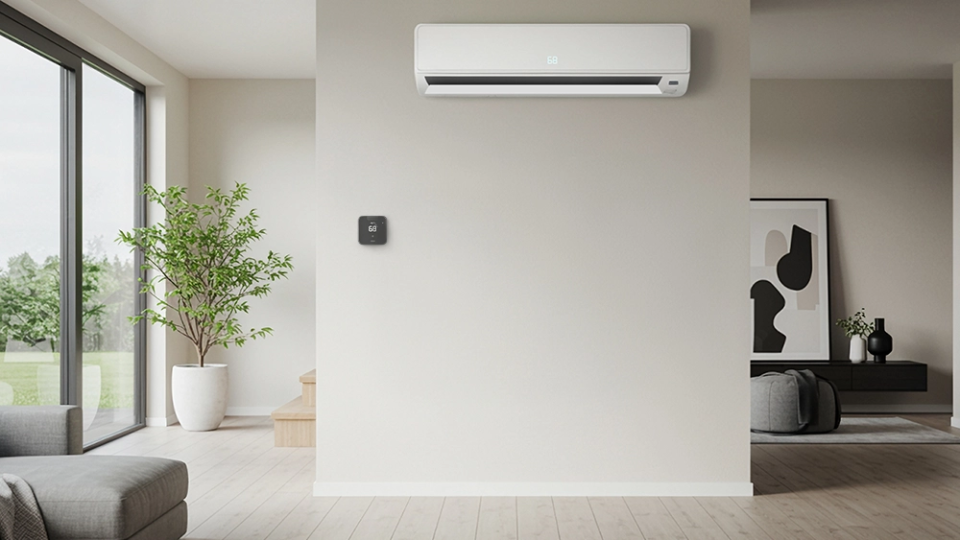

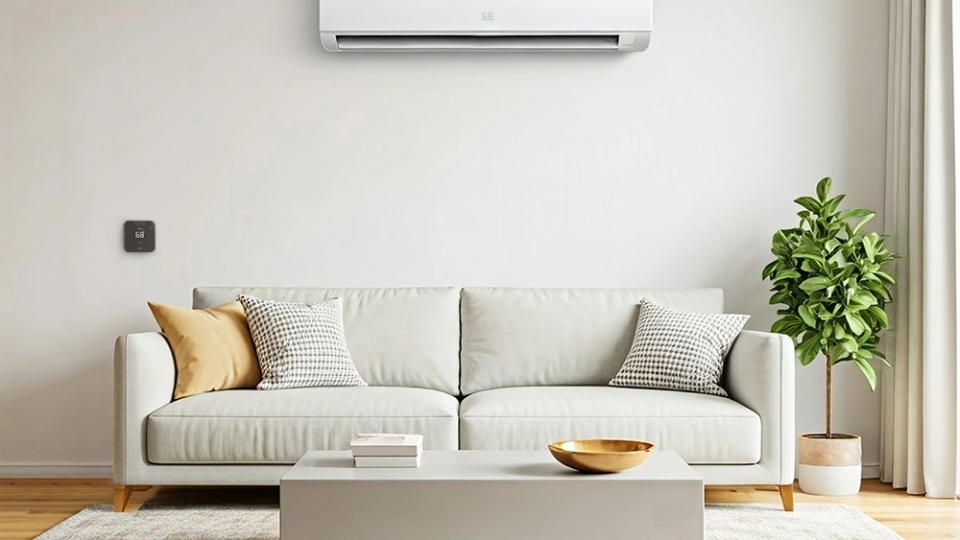

6 Comments. Leave new
New 2 ton, 2023 Bryant hvac system has air compressor failure. I still owe 4yrs payments Is this a typical problem with Bryant?
If there is a visible hole in the compressor housing (which leaks refrigerant), can this issue be caused by restricted ducts?
What is the main cause of compressor failure
Power surges, compressor overheating and dirty AC coils are some of the common causes of air conditioner’s compressor failure.
Good Knowledge share
Thanks
Excelent! Thank you very much!